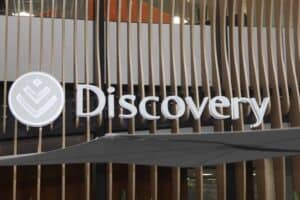With the worldwide increase of cancer incidence, reliable and affordable cancer screening tests that are easily accessible have become of utmost importance. So has comprehensive cover for cancer and support for survivors.

Much progress has been made in screen testing for cancer and also the support given to cancer patients. It was just yesterday that the South African Mushroom Farmers’ Association (SAMFA) and Pick ’n Pay handed over a cheque of R626,820 to NPO Reach for Recovery – funds raised by their annual Power of Pink campaign, supporting breast cancer survivors. And today, a world-first cancer screening test launches in South Africa, making earlier cancer detection possible and accessible.

A ground-breaking screening test for SA
With World Cancer Day taking place on 4 February, it’s only fitting that the blood-based “Trucheck” cancer screening test – a high-sensitivity cancer screening test – lands in the country today. This ground-breaking early detection screening test was developed by Datar Cancer Genetics and is brought to the country by the representative and distributing company, Unique Diagnostics.
This video is no longer available.
This screening test can now be used as part of individuals’ annual health checks (for those 40 years and older) and fits diverse needs of cancer screening. The Trucheck-Breast and Trucheck-Prostate screening tests, for instance, are reliable substitutes for mammograms and digital prostatic examinations respectively and can detect earliest traces of the respective cancers from a simple blood sample. The broader panel Trucheck-Intelli can screen for 70 different organ-specific tumours in a single test.
Breast cancer is detected in more than 2.3 million women worldwide each year. Early detection can ensure enhanced longevity and even cure from cancer in many cases. Cancer survival rates are much higher in the case of early-stage diagnosis (over 90%) and early detection also guarantees lesser expense on treatment.
The Trucheck-Intelli test uses a proprietary technology to detect Circulating Tumour Cells (CTCs). Studies have shown that even Stage 0 (DCIS) and Stage 1 cancers are detected with the highest accuracy through this test. It requires only 10ml of blood and can be used by any asymptomatic individual above the age of 40.

Dr Chirantan Bose, Director at Datar Cancer Genetics, says: “We believe that detection of Circulating Tumour Cells is a very dependable and accurate method for early detection of cancer. It enables capture and characterisation of functional components of a tumour, rather than surrogate evidence like biochemical markers, which are far less accurate for cancer screening. Also, being a blood test, Trucheck samples can be collected from the convenience of homes and does not require the individual to visit a hospital.”
READ: Why you need to go for your annual breast cancer screening
But, are you covered for cancer?
Being diagnosed with cancer can turn your whole world upside down and with the Trucheck cancer screening’s quick and effective results, the news might come as even more of a surprise than anticipated. Not being covered for cancer on top of it all, might not go down so well.

There is a tendency to think that even if we have the most basic medical aid cover, we are fully protected should we be diagnosed with cancer. That is not necessarily the case.
These are the questions you need to ask to ensure that you are comprehensively covered:
When is cancer a PMB?
There are two types of cancers – one affects solid organs like the liver, breasts and prostate and the other affects non-solid organs and systems like your blood or lymphatic system. Cancer of solid organs qualifies as a PMB if it is deemed to be treatable. If it can’t be treated, it is not seen as a PMB and a medical aid does not have to pay for its treatment.
Some cancers of non-solid organs and systems like leukaemia, multiple myeloma, lymphomas and chronic leukaemia also qualify as PMB conditions, whether they are treatable or not.
What must my medical aid cover?
Medical aids are obliged to cover the cost of a cancer diagnosis, as well as treatment and care at a PMB level. This could include consultations, radiology, surgery, pathology, chemotherapy and radiation therapy. Some options make specific benefits available for treatment in excess of PMB levels of care, so as a patient you need to check your oncology benefits on your medical aid plan and weigh up whether you think it is likely to be sufficient or not.
What’s my family history?
Some cancers are hereditary, like cancer of the prostate, breast, colon and ovaries. If you have immediate family members like parents or siblings who have had these kinds of cancer, your risk of contracting it, is much higher. It might therefore be worth checking your medical aid to see whether these specific cancers are covered for you, and up to what extent. Fedhealth, for example offers preventative care benefits, including important health screenings like mammograms, which can help detect breast cancer early that it can be treated.
Do I need to use specific service providers if I am diagnosed with cancer?
Medical aid schemes can often insist that you choose from a pre-determined list of health providers for cancer treatment. This means that you might have an oncologist in mind whom you would like to use, but he might not be on your medical aid’s approved list and will therefore not be covered. Hence, you will need to weigh up the financial costs you will incur if you want to go with a specific provider, instead of choosing one that is within your medical scheme’s network and will be covered.
Being diagnosed with cancer is a scary thought and something we’d all rather not face in our lives. Still, in a world where more and more people are being diagnosed with the big C, being prepared might be the responsible thing to do. Let World Cancer Day serve as a reminder to prepare for the unpredictable.
This video is no longer available.






